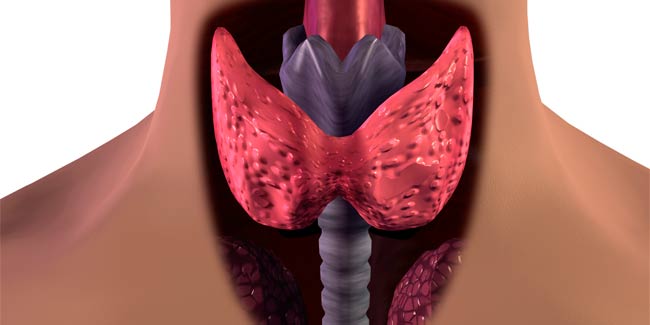

Thyroidectomy is a safe surgical procedure employed to remove an infected portion of the thyroid or in some cases the entire gland. This surgical procedure of treating an infected thyroid gland involves some degree of risk. Complications arising from a thyroidectomy can range from minor to major, varying based on the extent of surgery required and also from patient to patient.
Some Possible Complications Include:
Haemorrhage beneath the neck wound – A hemorrhage is a condition of excess bleeding either within the body or externally. If post-thyroidectomy hemorrhaging occurs, the surgical wound bulges and the neck region swells. This swelling of the wound may cause a certain amount of pressure to build up, thereby compressing structures inside the neck and interfering with normal breathing. This condition might prove to be fatal if not treated like an emergency.
Thyroid storm – The thyroid gland, when treated can be in an ‘overactive’ state. If a thyroidectomy is performed to treat an overly active gland, a condition often referred to as thyrotoxicosis. In rare cases, there may be a surge of thyroid hormones found in the blood, post a thyroidectomy. This is a rare complication, especially, since the patient is equipped with medication prior to the surgery in order to prevent the occurrence of this problem.
Injury to the recurrent laryngeal nerve – The recurrent laryngeal nerve is responsible for the vocal cords, which help to produce sounds while speaking. Considering the nature and duty of the recurrent laryngeal nerve, injury to it can lead to vocal cord paralysis and may sometimes also be responsible for husky voices that may last for short or long durations. In rare cases, if both vocal cords are paralyzed, the opening of the throat may be obstructed, causing breathing problems.
Injury to a portion of the superior laryngeal nerve – If while the thyroidectomy is being performed, a portion of the superior laryngeal nerve is damaged, the vocals of a person might be permanently affected. In the case of vocalists and singers, the ability to pitch high notes will be disabled. Voice projections too will be negatively affected.
Hypoparathyroidism – During a thyroidectomy, if the parathyroid glands are surgically removed in error or if the parathyroid glands are unintentionally damaged while the surgery is still in progress, there are chances of the patient suffering from hypoparathyroidism. It is a condition in which, the levels of parathyroid hormone (a hormone that helps regulate body calcium) are produced in abnormally low amounts, which can lead to lower levels of calcium in the blood stream.
Infection of surgical wound - Once the thyroidectomy is performed; utmost hygiene of the surgical wound must be maintained. Defaults in cleansing the wound might lead to painful infections and in extreme cases occurrence of keloid may be witnessed, leaving permanent facial skin damage. Post surgery care must be provided in order to keep the wound free from getting infected.
Read more articles on Thyroidectomy.
Read Next
Common Causes of Thyroid Problems
How we keep this article up to date:
We work with experts and keep a close eye on the latest in health and wellness. Whenever there is a new research or helpful information, we update our articles with accurate and useful advice.
Current Version